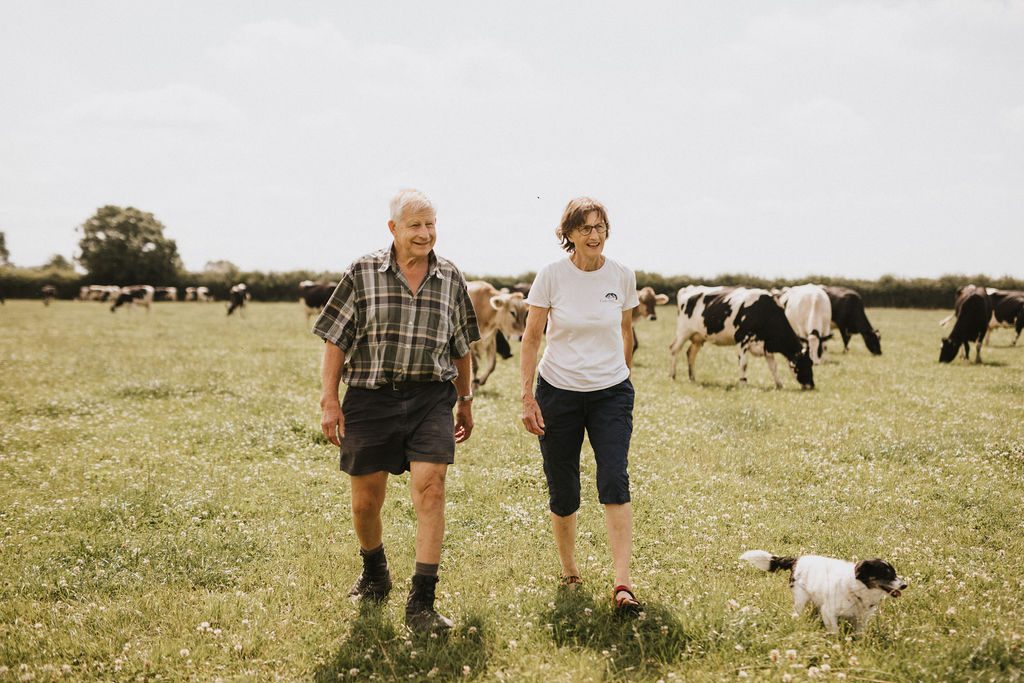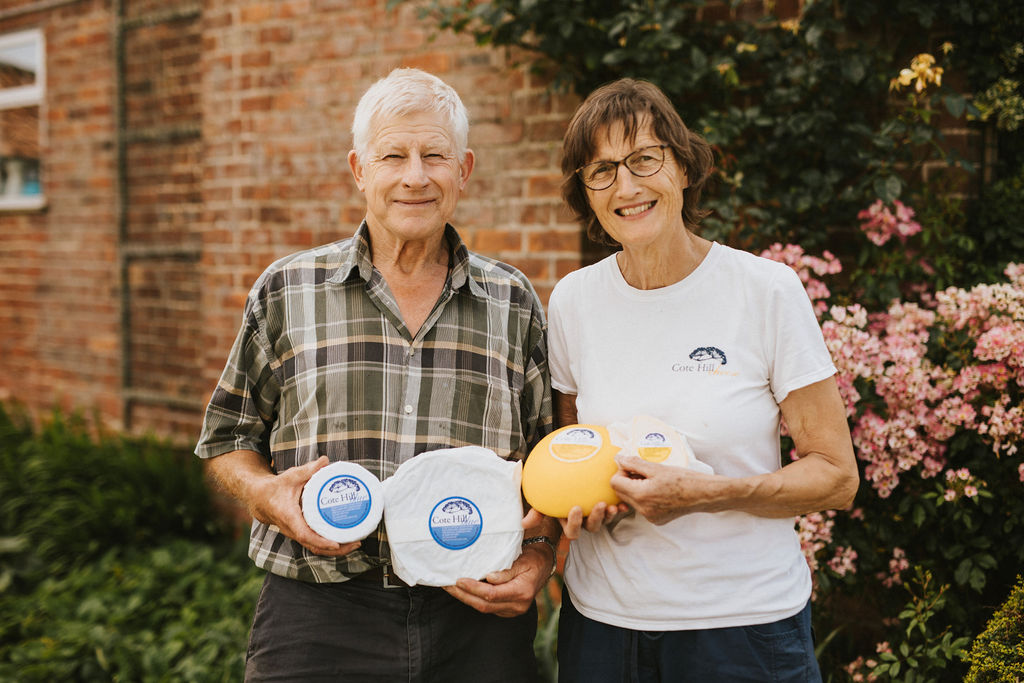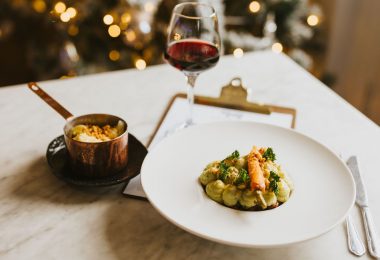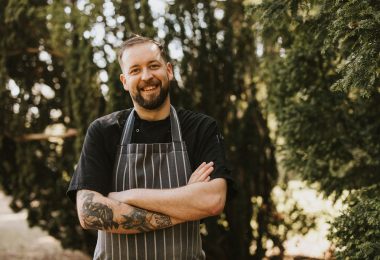A visit to Cote Hill Farm is in itself a joy – and that’s even before you get to sampling the artisanal produce the Davenport family hand-make daily. Home to Cote Hill Cheese, the family farm – nestled at the foot of the Lincolnshire Wolds – is headed up by Mary and Michael, supported by their sons Joe and Ross – not forgetting their stunning herd of 80-strong dairy cows that happily wander the fields in between milking, the family’s Jack Russell’s who will no doubt run up to say hello on your arrival and recently born calves curiously watching your antics from their cosy bed in the barn.
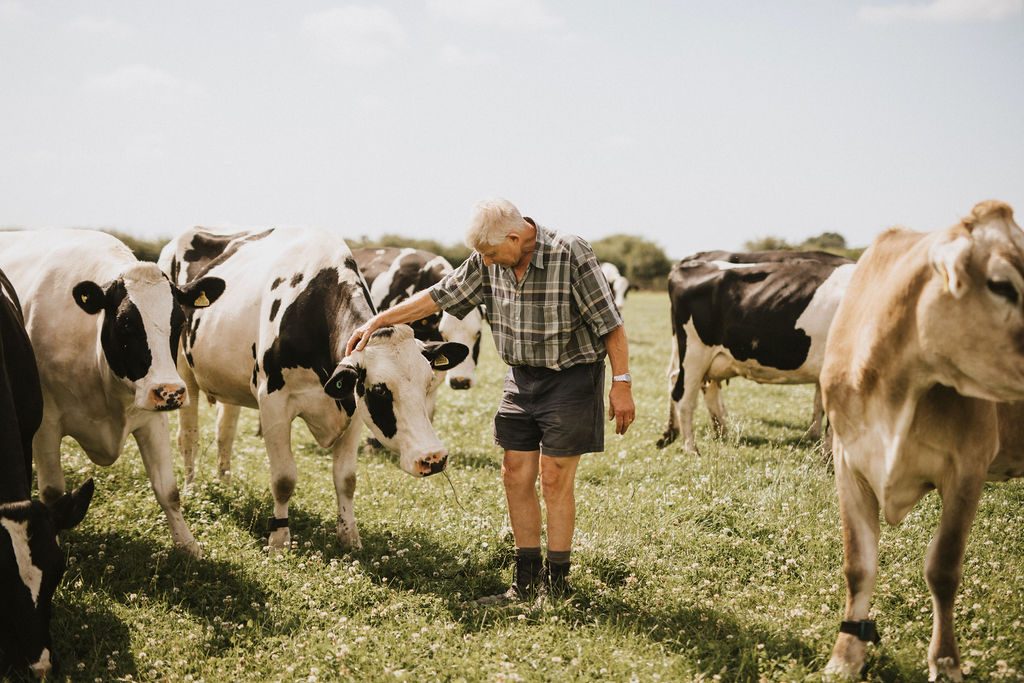
It may sound romanticised, but the traditional and rural home of Cote Hill Cheese really is as picturesque as your mind may lead you to believe. A family business through-and-through, Mary and Michael have been at the farm for more than 40 years – Michael having lived there since the mid-60s in fact, growing up on the farm with his parents milking the cows – each family member taking on various roles from making the cheese to working on the accounts, social media and packing.
Despite the farm traditionally being a dairy farm, Michael and his parents milking the stunning herd since 1965, the dwindling purchase price paid to dairy farmers pushed the family to diversify, and cheese was the natural choice.
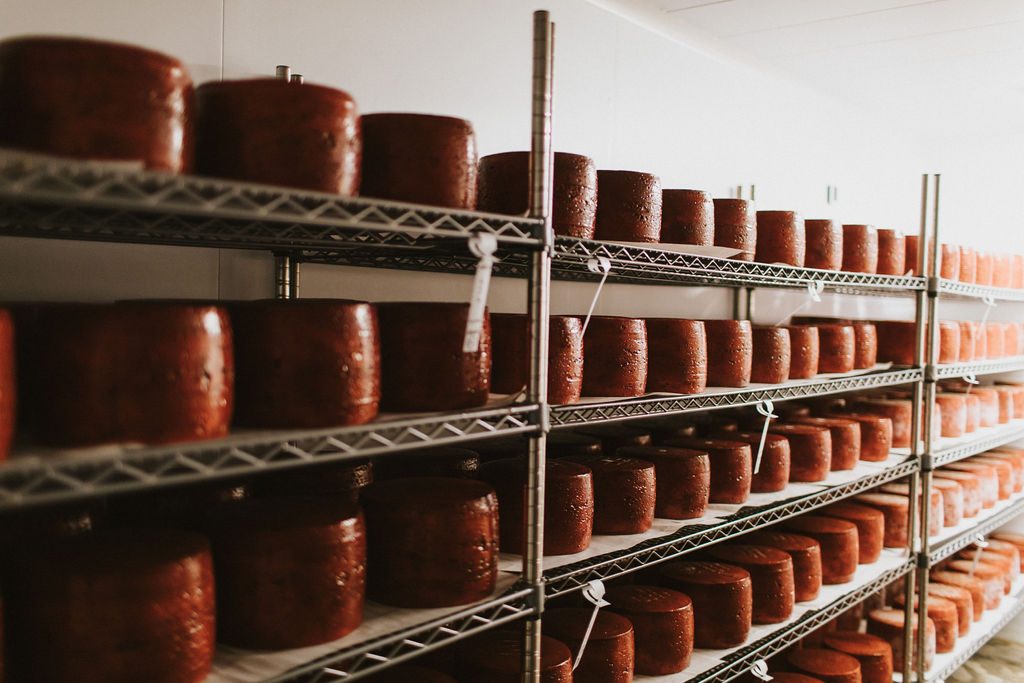
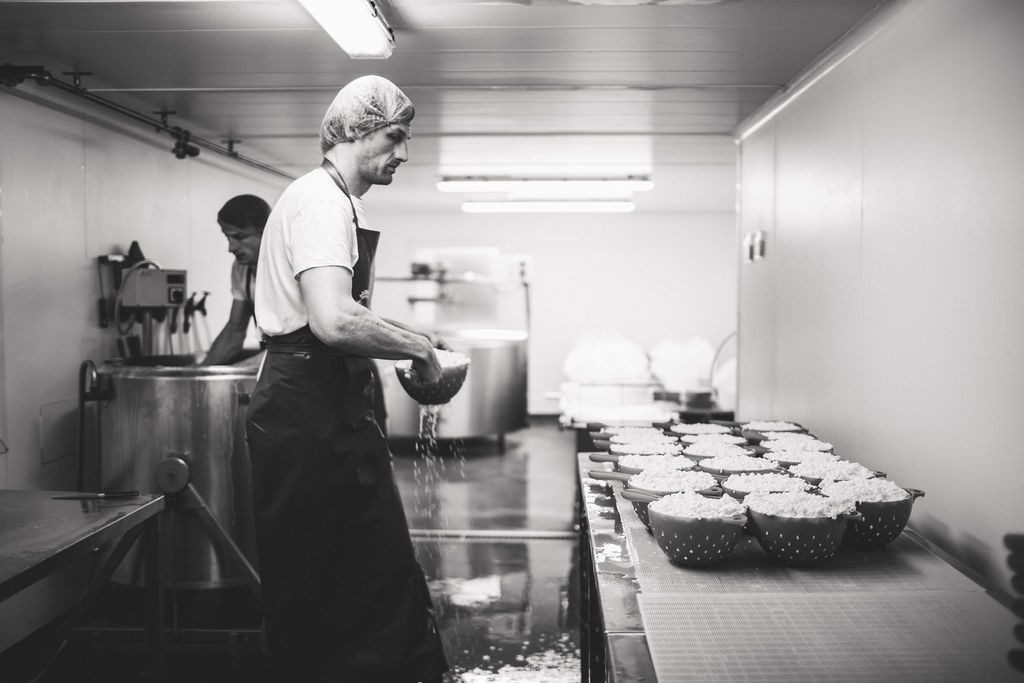
We have known Mary and Michael for a long time, proudly championing their cheeses on our menus in The Portman, Pig & Whistle and The Lincolnshire Kitchen – our take-away service. The ethos that Mary and family drive into every aspect of their business – traditional processes, small production numbers and a personal, hand-crafted approach to making, not forgetting their approach to sustainability – is one that rings true with everything we do here at the Manor.
So much about life on Cote Hill Farm truly sets the business apart from other competitors. Ideas like the direct milk feed from the milking parlour. Unlike other cheese producers who may buy in milk from other farms, adding to the food miles, at Cote Hill Farm there is no waiting for their cow’s precious bounty – it travels not even one meter further than it needs to. Straight from the dairy herd to the production rooms. And just as food miles are being kept to a perfect zero, even the by-products of Cote Hill’s cheese making process – potential waste products – are put to incredibly sustainable uses.
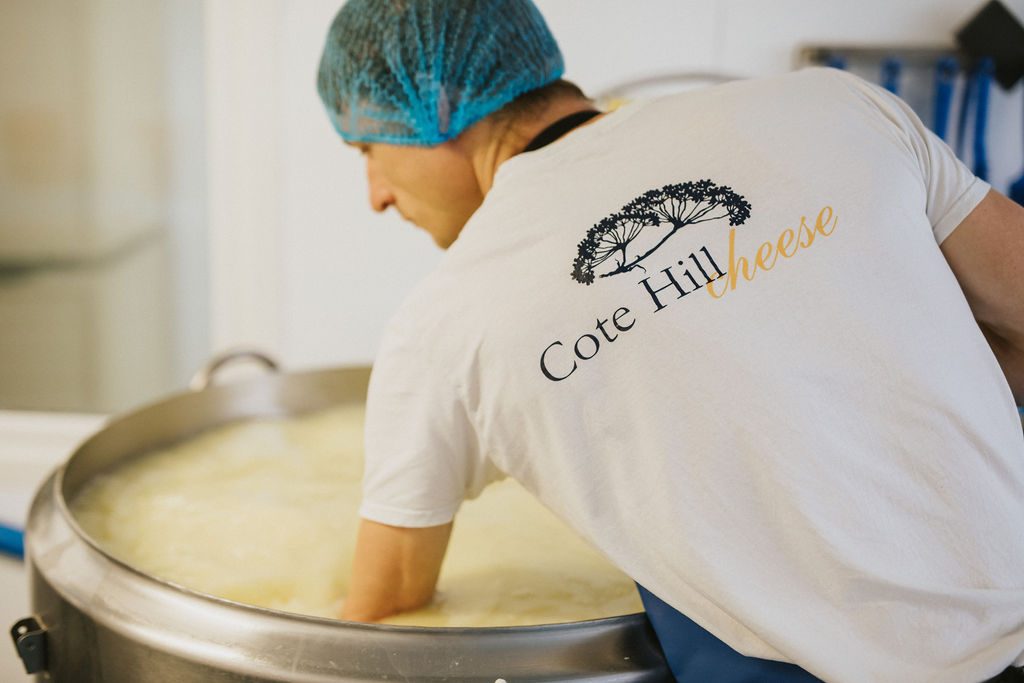
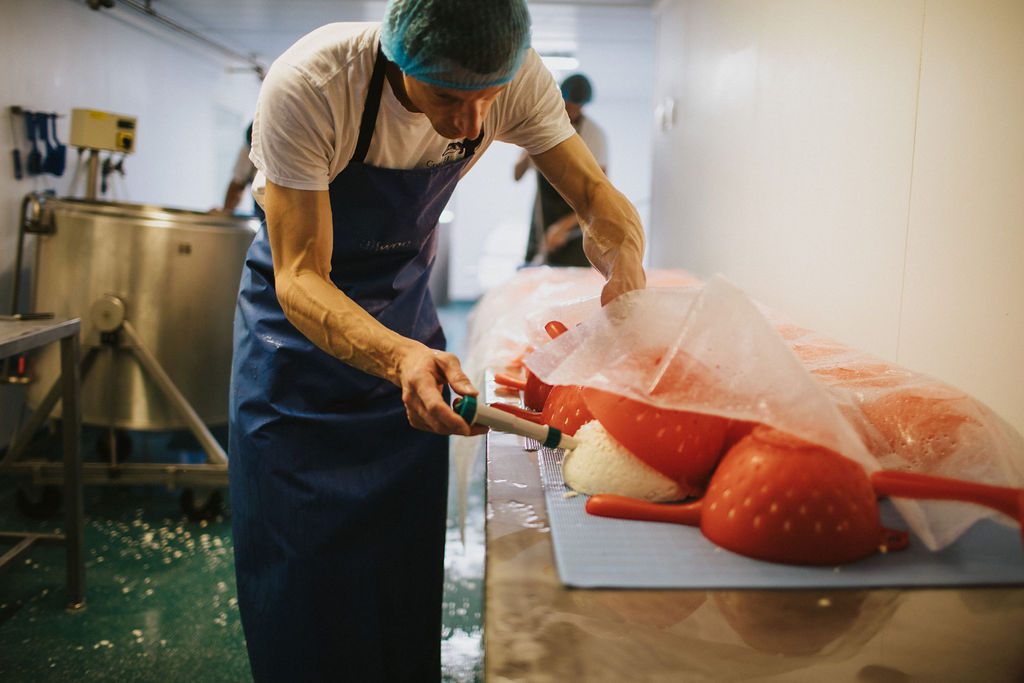
When it comes to making Cote Hill’s famous cheeses, once the rennet is added – making the fat (curds) rise to the top of the vats – the cheese is ready for a mould, and the whey has a vitally important roll to play too – feeding the farm itself. All of the run-off drains straight through the floor and into the green water system the Davenport family has installed, feeding the land the cows graze on, and making sure every morsel of the cheese-making process is utilised.
From 300L of the farm’s raw milk, about 200L of whey is produced, alongside around 30kg of cheese. Each variety – of which we stock Cote Hill Blue and Yellow – taking its own special blend of time, ingredients, temperature, and starter.
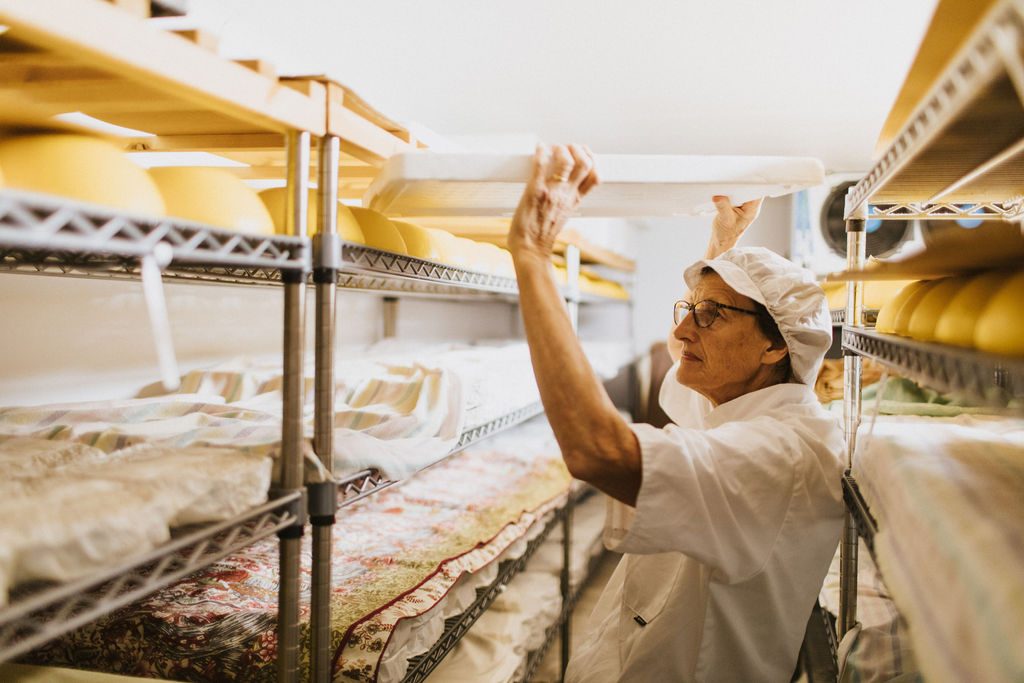
First made in 2005, Cote Hill Blue is still their most popular, go-to cheese, it is now joined by a host of other varieties. “First made in 2005, we knew not everyone liked blue cheese,” says Mary. “So, the following year, we launched Cote Hill Yellow – a mild, soft buttery cheese. We also started producing our Cote Hill White, a fresh cheese similar to feta but softer.”
Each of Cote Hill’s cheeses have traditional processes at heart. For Cote Hill Blue the piercing – to help the blue mould develop – is more often than not done by hand. The red coating on Cote Hill Red is painted by hand, and each of the cheeses turned by hand multiple times while the proteins bond together. But there’s a reason the blue is Cote Hill’s champion product. From the flavour and the shape to the style of the cheese, there are very few blue cheeses like it. So, it should come as no surprise, that a stream of award wins from the likes of Great Taste and The Artisan Cheese Awards.
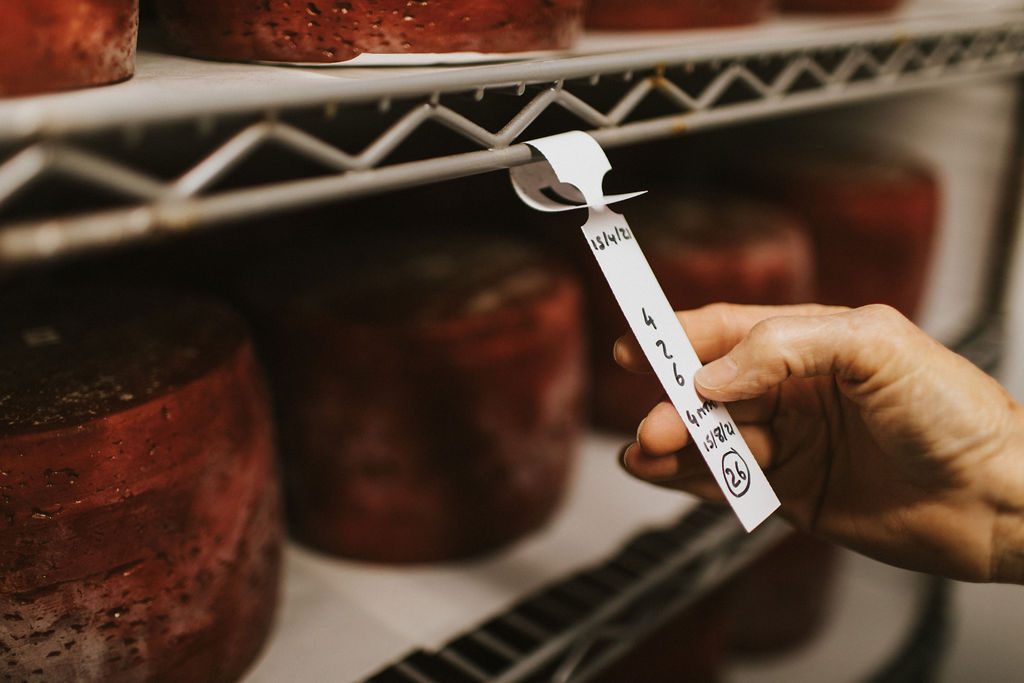
To maintain the family’s high standards and expand, the site itself has been added to over the years, the most recent development being 3 years ago giving Mary and the team a specific room the washed rind cheeses. Year-on-year the business has grown. From using their savings of £15,000 and a grant for the same amount, when the farm first diversified, Cote Hill produced 3-tonnes of cheese in its first year, 6-tonnes in the second, and, in the third, 9-tonnes. This past year, 24-tonnes of Cote Hill’s award-winning products left the farm. Quite the feat for a small family farm. And that 24-tonnes is the cap. Mary and the family can now work 4-days a week, have their own lives and still run a successful company. Staying small, and keeping their cheeses a niche, artisanal product.
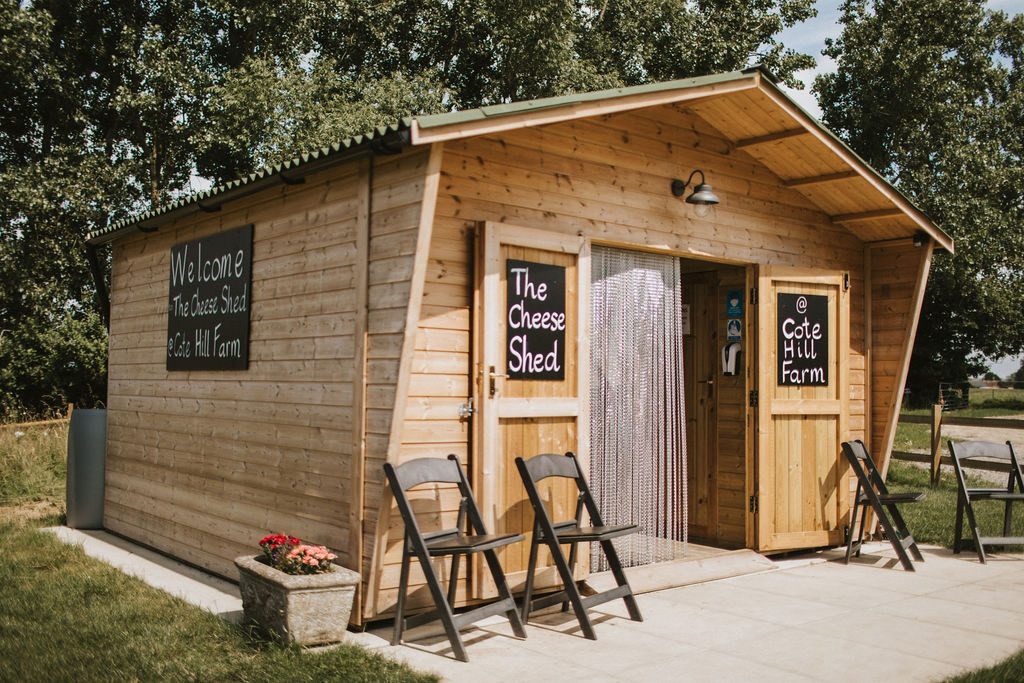
During lockdown, the farm maintained cheese production while still offering delivery and expanding its on-site facilities to help its support its customers. A cabin full of fresh produce vending machines was installed where cheeses, eggs and even fresh milk could be purchased. There are also products from other local producers, from Jenny’s Jams and Croft Apiaries to Starbucks Flour and Modens Plum bread.
Despite stores now being open, Cote Hill has seen usage of their cabin stay. Other businesses too have made use of other things that could also go to waste, like Cote hill’s milk. Willingham Fair in North Willingham using the creamy, fresh product to make their own ice cream in-house.
